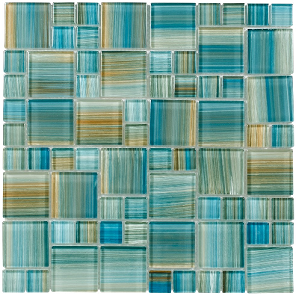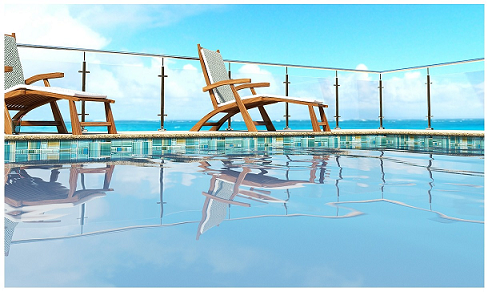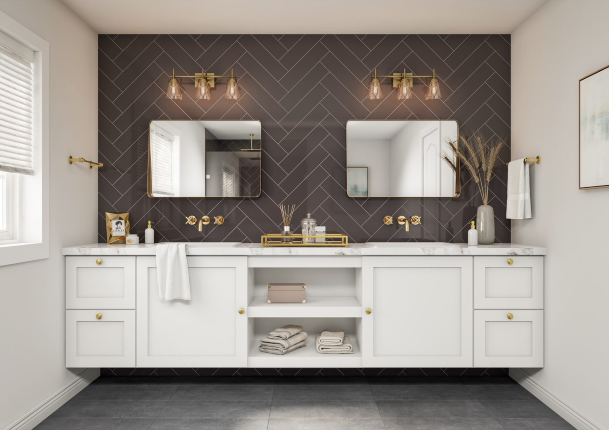 Glass mosaictiles are becoming more and more popular in swimming pools. The variety of colors and shapes in addition to the characteristics of the glass make glass mosaics the ideal choice for architects and designers. The variety ofcolors and shapes make glass mosaics the ideal choice for every swimming pool.
Glass mosaictiles are becoming more and more popular in swimming pools. The variety of colors and shapes in addition to the characteristics of the glass make glass mosaics the ideal choice for architects and designers. The variety ofcolors and shapes make glass mosaics the ideal choice for every swimming pool.
But not all glass mosaics are the same. Thickness, assembling process and the way the glass is made plays a big factor to make a tile suitable or not for pools. Although there are dozens of different types of glass manufacturing process, hot glass and clear process are the most common for pools.
You should always check the recommended application with thevendor or manufacturer before installing any glass mosaic tiles in a swimming pool. It's very important to check with the manufacturer if the glass is suitable for wet applications.
Hot Glass
The glass is melted and mixed with pigments. Then the liquid glass is poured into a mold to make the chips. This process is a more "artistic" way to make mosaics; the tiles have a lot of variation from chip to chip. Most of the time hot glass tiles are not translucent, and the color is part of the entire chip.

Clear Glass
Clear Class tiles start with big glass panels that are cut to size and back painted. After the paint dries, the panels are cut into chips, and put into a kiln in order to smooth the edges and fuse the paint to the back of the glass. Clear glass tiles are the majority of the products available in the market. Not all clear glass tiles are suitable for pools.
Installation
Installation plays a very important part in having beautiful glass mosaic in pools. Although similar in some aspect to a regular installation, glass mosaics in a swimming pool have to survive in a  tougher environment. That evolves pressure, changes in temperature, and chemicals in the water just to name a few.
tougher environment. That evolves pressure, changes in temperature, and chemicals in the water just to name a few.
Of course, a good installation will always start with a good waterproofing of the swimming pool. Also, you will need to install the glass with the recommended movement joints to allow the material to expand and contract without damaging the tiles or grout joints.
Last but not least theinstaller should always followANSI andTile Council of North America standards for glass tile installation as well as the recommendations from the glass manufacturer.
As always, before purchasing glass tile for pool installations, check with any of D&B Tile's ninelocations or authorized dealers throughout South Florida where you will find qualified professionalsales staff to advise you on what type of tile works and what doesn't in swimming pools.


